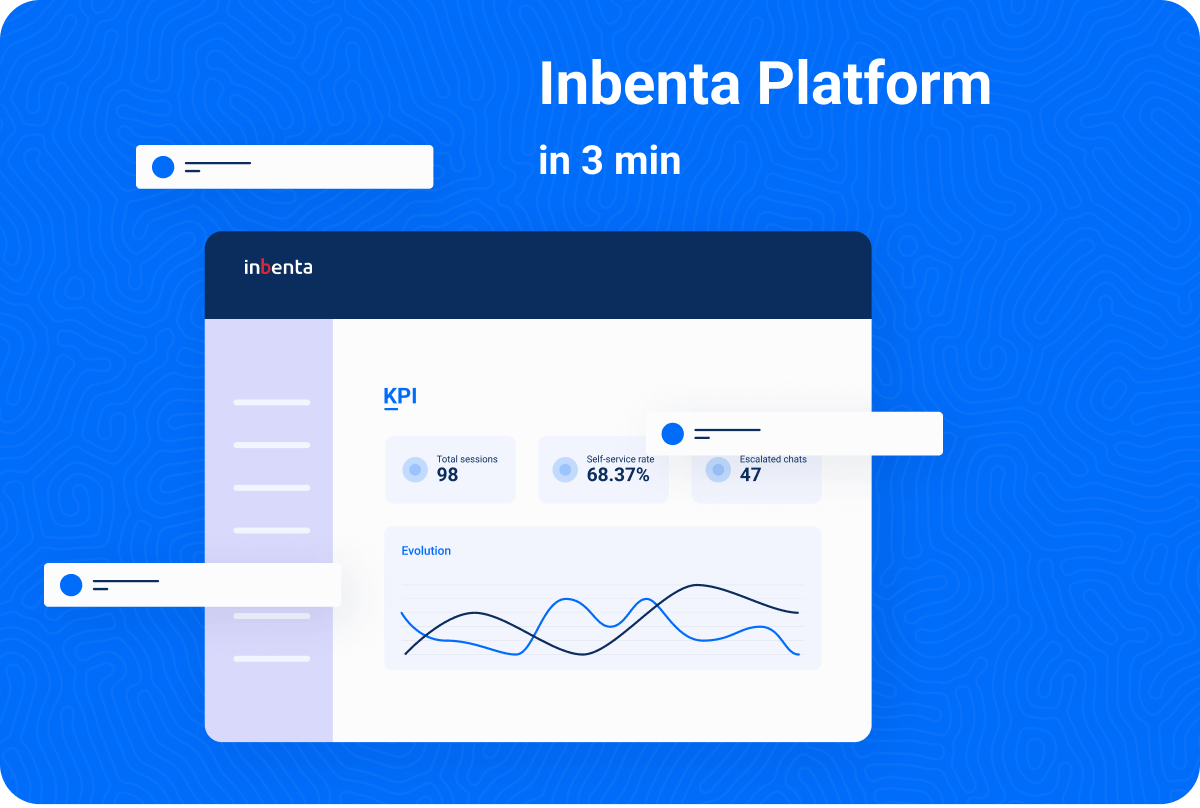In 2011, Jordi Torras, a former Oracle VP, had a realization: Companies weren’t optimizing their search technologies as well as they could be. He founded Inbenta to solve this, providing professional consulting services while simultaneously developing an internal AI toolkit for search optimization.
Over the years, Inbenta transitioned from consulting to providing conversational AI as a service — inclusive of AI-powered chatbots, knowledge management and search engine tools. This proved to be a wise move — Inbenta’s customer base has grown to more than 250 brands across industries including financial services, travel, e-commerce, insurance, auto and telecom.
In a sign that investors approve, Inbenta today closed a $40 million funding round led by Tritium Partners, bringing the startup’s total raised to over $60 million. Melissa Solis, Inbenta’s newly appointed CEO, says that the new cash will be put toward people, processes and platform R&D to — in his words — “position Inbenta for the anticipated explosive growth in the conversational AI space.”
“Inbenta is developing a comprehensive platform that tailors AI-driven solutions across industries and use cases for the needs of all enterprises,” Solis continued. “We’ve spent over a decade fine-tuning our proprietary and patented AI toolkit globally, in 35 languages, perpetually advancing it through billions of customer interactions.”
Inbenta offers four main products: Chatbot and Messenger, Knowledge and Search.
Chatbot and Messenger — both chatbots — can be built into existing websites and apps (e.g. WhatsApp, Facebook Messenger and Slack) to provide answers to customer questions. They retain conversation histories, automatically escalating complex queries to human agents or a ticketing system, and leverage automation to handle tasks like securing bookings, scheduling meetings and modifying orders.

Image Credits: Inbenta
Knowledge similarly supplies answers to common questions. But it’s not a chatbot — rather, it’s a sort of proactive knowledge base that can suggest contents for forms, auto-complete requests and predictively search for information. As for Search, it indexes data from different sources such as product catalogs and uses algorithms to tackle search queries, auto-correcting typos and spelling mistakes.
Like Chatbot and Messenger, Knowledge and Search can be embedded in most apps and web pages.
“From an enterprise perspective, Inbenta helps firms automate customer interactions, reduce the need and cost associated with human intervention and create an always-on channel for sales, marketing and HR,” Solis said.
One might wonder how Inbenta’s AI was developed, given that some chatbot vendors have a history of training their algorithms on user data without those users’ knowledge or consent. Solis says that Inbenta’s AI — which is “curated by a team of experienced analysts and computational linguists,” he claims — is “fully anonymized,” with controls to let users delete their data from the platform if they wish.
With its portfolio, Inbenta is competing for market share on a number of fronts. In the chatbot space, the company has rivals in Quiq and Ada, which deliver customizable, AI-powered chatbot services to brands. Inbenta’s Knowledge product competes with offerings from startups like Sana, while Search squares off against Hebbia’s document indexing tool.
Solis declined to reveal Inbenta’s revenue when asked, making it tough to gauge the company’s traction. Matt Bowman, the managing partner at Tritium Partners, didn’t express concerns — not that he would, given that he’s an investor. But in an emailed statement, Bowman stressed what he sees as Inbenta’s differentiator: “multilingual capability that requires zero data training and is perpetually improving with each interaction.”
“Being highly configurable across use cases and industries, Inbenta allows customers to get an immediate return on investment while having a platform that can meet future needs as usage expands,” Bowman added.
Dallas, Texas-based Inbenta has more than 160 employees currently. It plans to grow that number to more than 200 by 2024.
